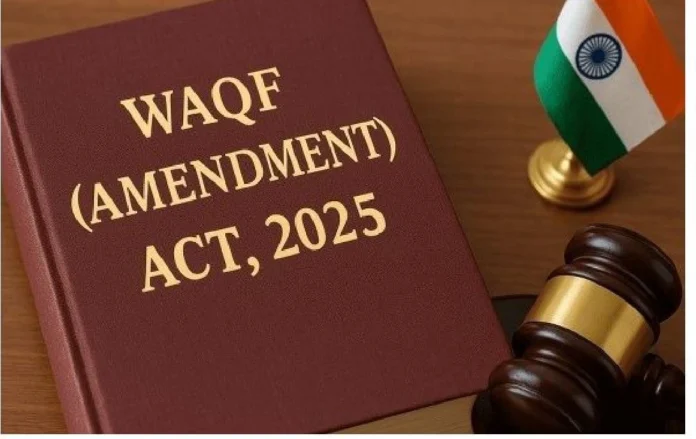By Sanjay Raman Sinha
In a nuanced interim order, the Supreme Court bench of Chief Justice BR Gavai and Justice AG Masih upheld the constitutional validity of the Waqf (Amendment) Act, 2025, even as it stayed or modified certain provisions deemed problematic. The bench stressed that striking down a law passed by Parliament must be done only in rare cases—when legislation is manifestly arbitrary or lacks legislative competence. Petitioners had argued that the Act infringed on fundamental rights under Articles 14, 15, 25 and 26 of the Constitution. The Court’s ruling carefully balanced these concerns, granting interim relief by suspending some provisions while allowing others to stand.
PROVISIONS STAYED
- Practicing Muslim Requirement: Five-year “practicing Muslim” clause for Waqf creators stayed until rules are clarified.
- Automatic De-recognition: Government officials cannot unilaterally de-recognise Waqf properties without judicial oversight.
- Non-Muslim Membership Cap: Central Waqf Council limited to four non-Muslim members; state boards capped at three.
PROVISIONS UPHELD
- Mandatory Registration: Requirement for registration of Waqf properties remains in place.
- Abolition of Waqf by User: Customary usage without documentation no longer creates Waqf status.
- Tribal Lands: Ban on declaring tribal lands as Waqf upheld to protect Scheduled Tribes.
- ASI Monuments: No Waqf status for notified ancient monuments.
- Ex-Officio Appointments: Non-Muslims may serve in state Waqf boards, though CEOs “preferably Muslim”.
- Waqf Creation by Non-Muslims: Confirmed as impermissible, but donations via trusts remain possible.
- Limitation Act: Applied to Waqf disputes, aligning with property law principles.
The Court’s order has far-reaching implications. While leaving intact the core of the Modi government’s reforms aimed at secularising religious property laws, the judgment reins in provisions that could encourage administrative overreach.
By refusing to dismantle the framework of the law, the Court has given the government a green signal to pursue its broader secularisation agenda. This order also hints at the judicial posture likely to emerge in future battles over a Uniform Civil Code—an idea tied closely to the ruling party’s “One Nation” vision, including “One Nation, One Election”.
The Waqf (Amendment) Act, 2025, thus stands as both a progressive reform and a symbolic marker of the shifting ground beneath India’s Nehruvian model of secularism, raising questions about the social and political transformations yet to come.


